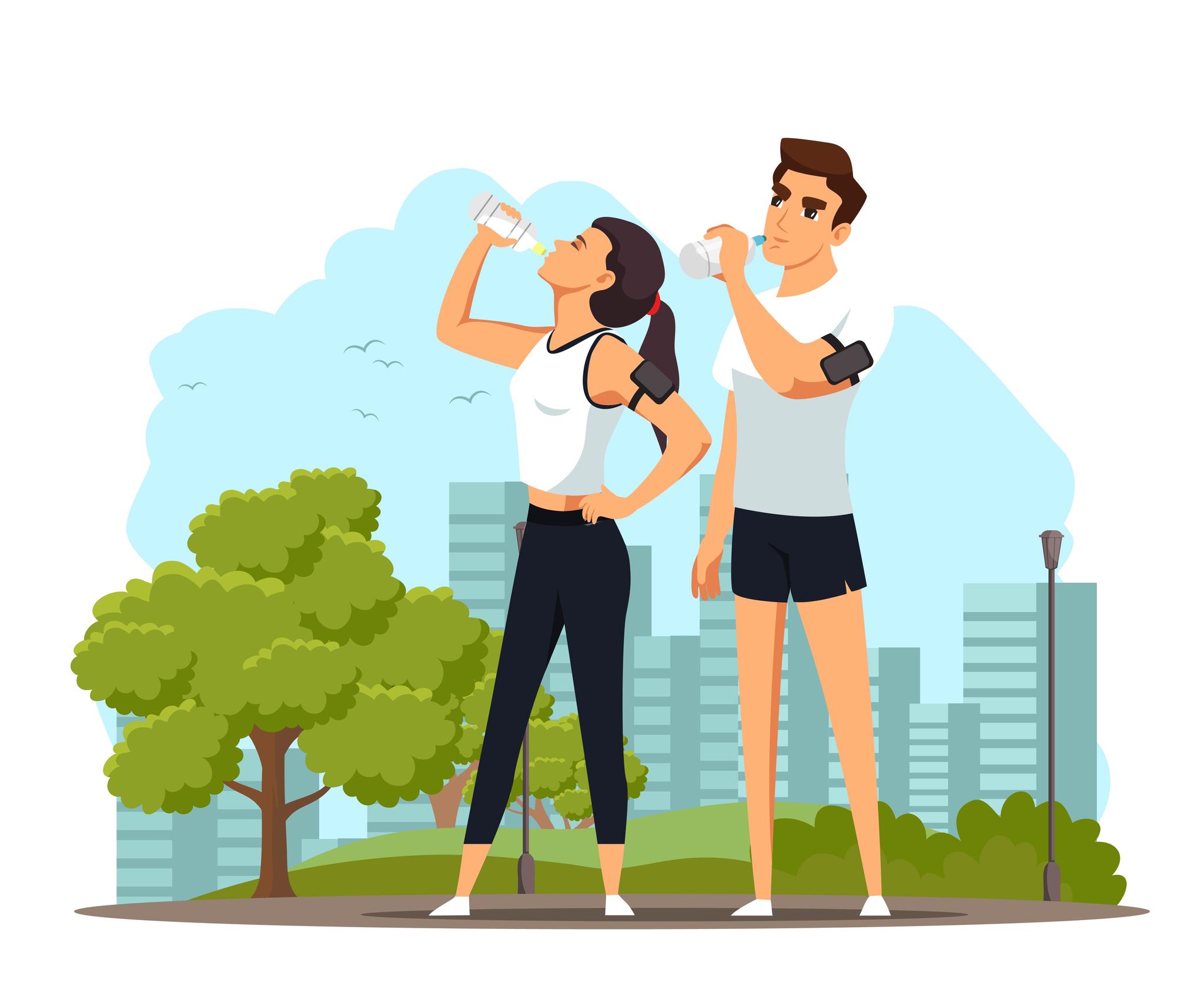
How much water should you drink in a day?
Although there are millions of search results for this question on google, there is no straightforward answer, as there is no answer that suits all. To know how much water your body needs, you must know more about water.
Water makes up 50 % to 70% of our body weight. Our body depends on water for many processes and functions. Humans can go without food for weeks, but we cannot sustain without water for more than a few days. Not getting enough water could cause dehydration and other health issues.
Our bodies lose water through the lungs during breathing, the skin from sweating, the kidneys as urine, and the digestive system in the form of stools. As our bodies don’t have any mechanism to store water, we have to hydrate our bodies by drinking water regularly.
What factors influence your water intake?
An average healthy adult needs 2.5 to 3 litres of water daily to stay healthy and hydrated. However, water intake also depends on the following factors:
- Body size: If you are comparatively bigger, you will need more water than a smaller person.
- Food/Drink: The type of foods and drinks you take in a day also dictates the amount of water you need. If you drink high amounts of coffee or tea in a day, you might lose more water through urine. Thus, you need to drink more water to compensate. Similarly, alcohol also makes you lose water, and you must keep up with your water intake.
- Physical activity: If your day-to-day work involves a lot of physical activity and sweating, you need more water than someone who works in an air-conditioned office
- Weather: Hot and humid weather will make us drink more water.
- Metabolism: A person with a higher basal metabolic rate or faster metabolism will require more water than someone whose metabolism is slower.
- Health issues: People with chronic kidney, liver or heart diseases should consult their doctors on how much water they can drink in a day. Such people may be subjected to fluid restriction owing to their health conditions.
How will drinking adequate water benefit you?
- Digestion: Water promotes digestion and helps prevent constipation.
- Waste removal: Water helps remove wastes from the body through urine, stool, and sweat
- Maintenance of body temperature: Water in the body helps regulate our body temperature at appropriate levels through sweating.
- Joint lubrication: Water cushions and lubricate the joints.
- Skin health: Water helps maintain the integrity and texture of the skin, moisturizes it, and keeps it healthy.
- Nutrient distribution: Water in every body cell is essential as it carries nutrients and oxygen
- Maintenance of salt levels: Water also helps maintain salt or electrolyte balance in the body
- Maintenance of urinary tract health: Water helps flush out the harmful microbes from the urinary tract, thereby avoiding urinary tract infections
- Maintenance of body weight: Drinking water between meals can help relieve cravings and keep us full. Moreover, water is a zero-calorie drink, thus prevents weight gain.
How to tell if you are drinking enough water?
- Colour of urine: Passing a good amount of urine or colourless to pale yellowish urine is a sign of adequate hydration. In contrast, passing lower amounts of urine or dark yellowish urine indicates your body needs more water.
- Thirst: Feeling thirsty often indicates a degree of dehydration, and your body needs more water.
- Headaches: Frequent headaches accompanied by acidity or reflux could indicate that your body needs more water.
- Tiredness: Feeling tired, weak or dizzy could be signs of low blood pressure, suggesting your body has not gotten enough water.
- Constipation: Frequent constipation also indicates your body is low on water.
- Dry skin: Dry or cracked skin, lips, and nose are signs of dehydration.
- Mood changes: Frequent feeling of irritability indicates dehydration.
- Muscle cramps: Dehydration causes muscle cramps due to low water and electrolyte supply to the muscles.
- Confusion: Elderly people may not show the above signs of dehydration but might be disoriented and confused.
How to take enough water to be hydrated?
- Drinking fresh and plain water devoid of calories is the best way to stay hydrated.
- Keeping a bottle of water on your desk will help, mainly if you spend long hours working in an office.
- Ensuring you take water with snacks and meals can keep you hydrated. Taking water before and after meals will also help.
- People who do not like plain water can add a slice of lemon, mint leaves, or cucumbers to add flavour to the water.
- People who do not like drinking plain water can also stay hydrated by drinking skimmed milk, buttermilk, tender coconut water, and low-calorie soups.
- Fruit juices should be taken as a water supplement, not as an alternative to water.
When do you need more water?
Your body needs more water than usual in the following conditions:
- Vomiting, diarrhoea, or food poisoning can make you lose water and salts. So you need to take more water to replace the water lost.
- Taking a high-protein diet - Drinking more water helps the kidneys process the extra protein in your diet and prevents constipation.
- Pregnancy
- Breastfeeding
Takeaway points
- Water is a vital nutrient for every cell, tissue and organ in the human body.
- A person should take 2.5 to 3 litres of water daily to stay healthy. People with chronic heart, kidney, and liver conditions should consult their doctors to tailor their needs.
Consult top gastroenterologists and nutritionists at Bangalore Gastro Centre Hospitals in HSR Layout, Bangalore, to learn about water intake and how to alter your water intake if you have liver conditions.
